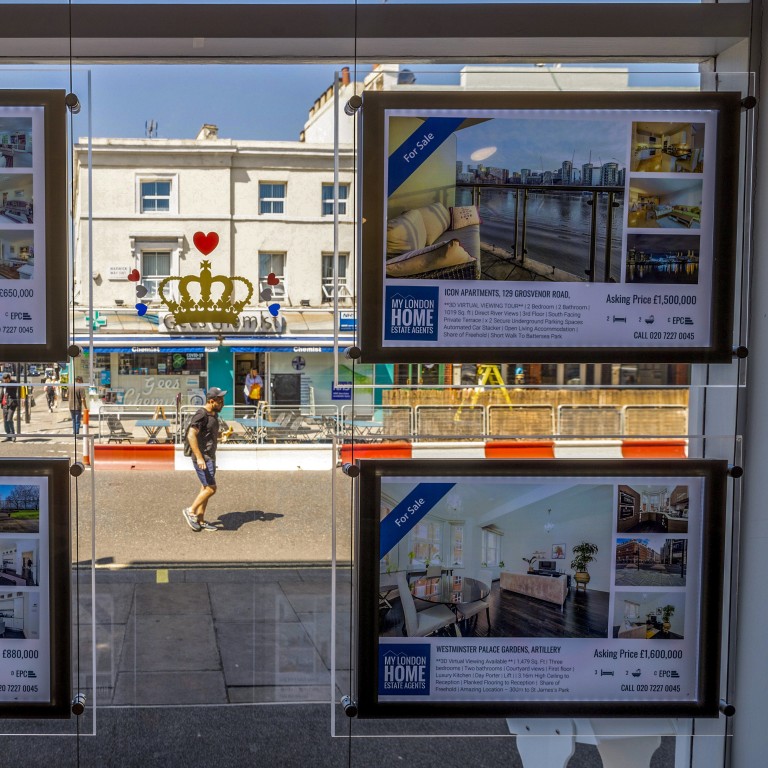
In boost for Hong Kong buyers, UK home prices have trailed those in EU states in six years since Brexit vote
- Since June 23, 2016, house prices across EU states have risen by 39.3 per cent on average, while those in the UK increased by 30.8 per cent
- First-time buyers may take some solace from the UK’s more relaxed pace of growth since Brexit, Knight Frank report says
According to a study published by Knight Frank recently, since June 23, 2016 – when 52 per cent of British voters shocked the world by deciding that London should go it alone – house prices across EU member states have risen by 39.3 per cent on average, with almost half the rate of growth occurring in the past two years during the coronavirus pandemic. House prices in the UK increased by 30.8 per cent over the six-year period.
“While UK investors will look enviously at the European Union’s outperformance – first time buyers in the UK may take some solace from the UK’s more relaxed pace of growth since Brexit,” the report said.
UK property sales to Hongkongers set to spike as pound weakens
More than 8,500 Hong Kong students are also estimated to have applied for school places in the UK since last September, with 8,000 getting offers, according to the British government.
The average house price in the UK rose to £281,000 (US$344,000) in April, an increase of 12.4 per cent from a year ago, and faster than a 9.7 per cent rise in March, according to the latest official data.
“Despite the EU-27 eclipsing the UK in relation to price growth over the six-year period, the difference is not significant with both prices and rents in the UK still rising significantly over the last six years,” said Kate Everett-Allen, head of international research at Knight Frank.
In 2020, the EU announced a €750 billion (US$790 billion) stimulus package to prop up the economies of its member states and counter the impact of the pandemic. Meanwhile, the European Central Bank kept key interest rates below 1 per cent to further support these economies.
Hongkongers buying property in the UK need hand-holding, reality checks
Moreover, the UK monetary authorities are tackling surging consumer prices and are likely to continue increasing key rates in the coming months, Knight Frank said. So, investors can expect home prices to moderate to single-digit growth by the end of the year.
“That discount will narrow should the Bank of England become more hawkish, trade tensions with the EU ease, [or as] GDP [gross domestic product] picks up or the prospect of Scottish independence fades,” said Tom Bill, head of UK residential research at Knight Frank.


